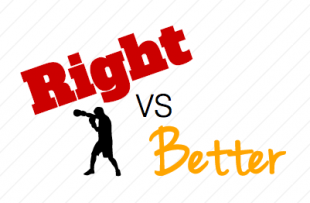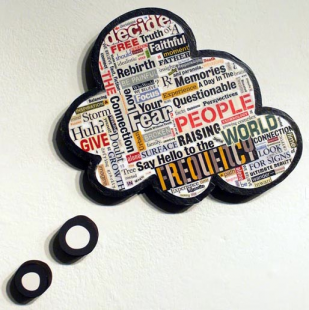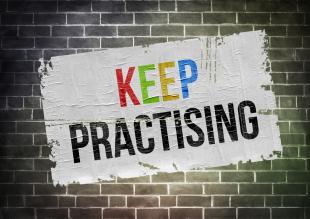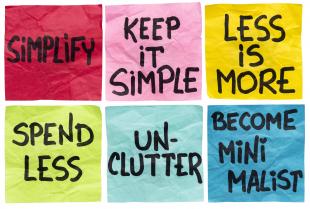A while ago a friend of mine, the crazy smart Karl Fast, tweeted: User experience design is not about right vs. wrong, it's about better vs. worse. Ask yourself "is this better" instead of "is this right." I talked to him about it further about the distinction. ... [more]
The volume, velocity, and variety of data available today provides learning professionals unprecedented opportunity to understand our users and impact our business. However, most of our industry’s analytics are still stuck in a mindset of delivering some flavor of "course completion" (scores, time on task, number of attempts, butts-in-seats). ... [more]
Hello, and welcome to the end of the year! If you’re like me, then you’re already sick of New Year’s resolutions because they never seem to work out the way you want them to. For example, every year I hope to lose weight with the ultimate goal of becoming invisible, but it just hasn’t happened yet. And don’t even get me started on my 2011 resolution to command my very own helicopter army. ... [more]
Last year, we asked many thought leaders from the elearning industry to share with us their hopes for the coming year. Our Learning Resolutions for 2013 series included the likes of Elliott Masie, Judy Unrein, Bruce Graham and more. This year, we’ve expanded the series to our partners and sellers, asking them to share their reflections from this past year and their insights for 2014. ... [more]
I declare that I will become more selfish about my own growth and development. That doesn't mean that I won’t be sharing lessons learned or awesome resources, but it does mean (darn it!) that I will make more time for it and I will take advantage of every opportunity to learn and develop during the workday and outside its usual confines. ... [more]
Making professional resolutions, for me, means answering the question: How can I improve the work I am doing? And it's not about creating a long list, but instead setting my sights on specific ways to develop better habits and get what will be a busy year off to a positive start. With this in mind it's my goal to get more practice in 2013. ... [more]
Clay Shirky stated: "It's Not Information Overload, It's Filter Failure." So filtering out the noise is the first step I’ve undertaken but it's not the only step needed. A lot of immaterial stuff gets filtered out but even the good stuff is only good at the right time and situation. I need to better allow the incidentals to slip by and better enable the essentials to adhere. ... [more]
BE CURIOUS. ASK A LOT OF QUESTIONS. Obviously a lot of learning comes from asking questions. But too often we don't ask the right question. The right question is far more valuable than a great answer to the wrong question. Eric Schmidt of Google said, “We run this company on questions, not answers.” Questions and the resulting conversations help us along the path to better results. For example, how often do confirm that the requests around "training issues" are really related to missing knowledge and skills? Do you run off and build what your client requested? ... [more]
When it comes to trying out any shiny new object in the learning field, I tend to be one of the first in line to buy, download, or sign up. Excitedly chasing new tools has served me well, providing me with a broad scope of productivity and design tools and skills with which I have better than passing knowledge. However, I tend to be a bit like Dug, the dog in the Disney-Pixar movie Up! You probably know of Dug. He's the talking dog with the attention span of a gnat. ... [more]
Sometimes we forget: eLearning is a broad concept, not just courses delivered on a computer. As I frame my resolutions for 2013, I'm reminding myself to keep thinking broadly about what defines our profession. ... [more]









